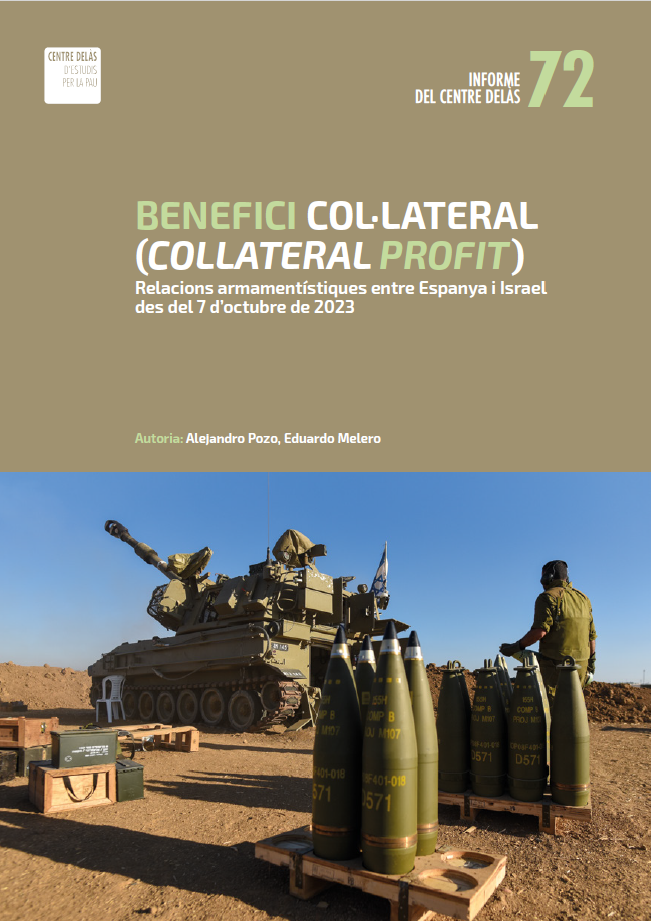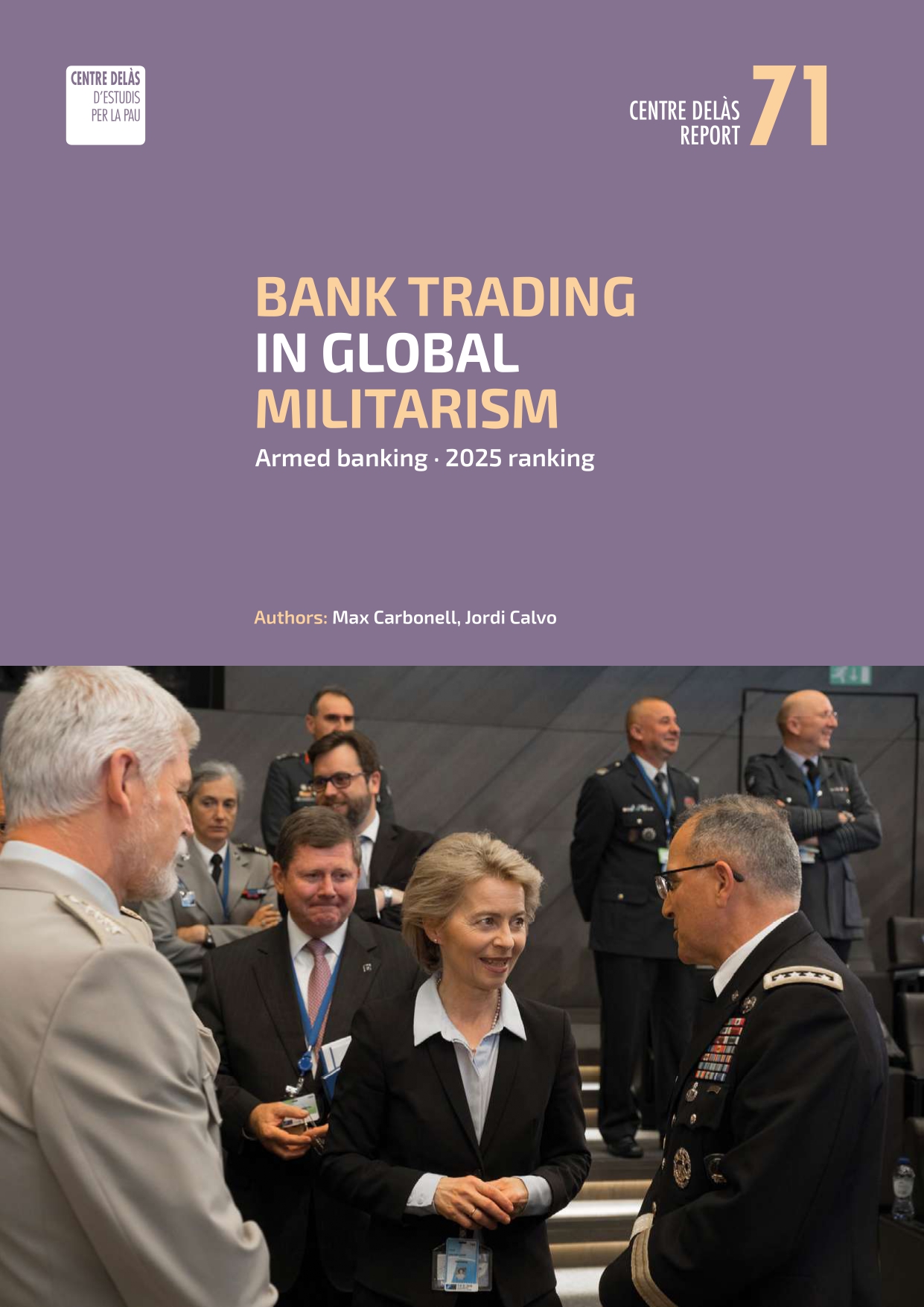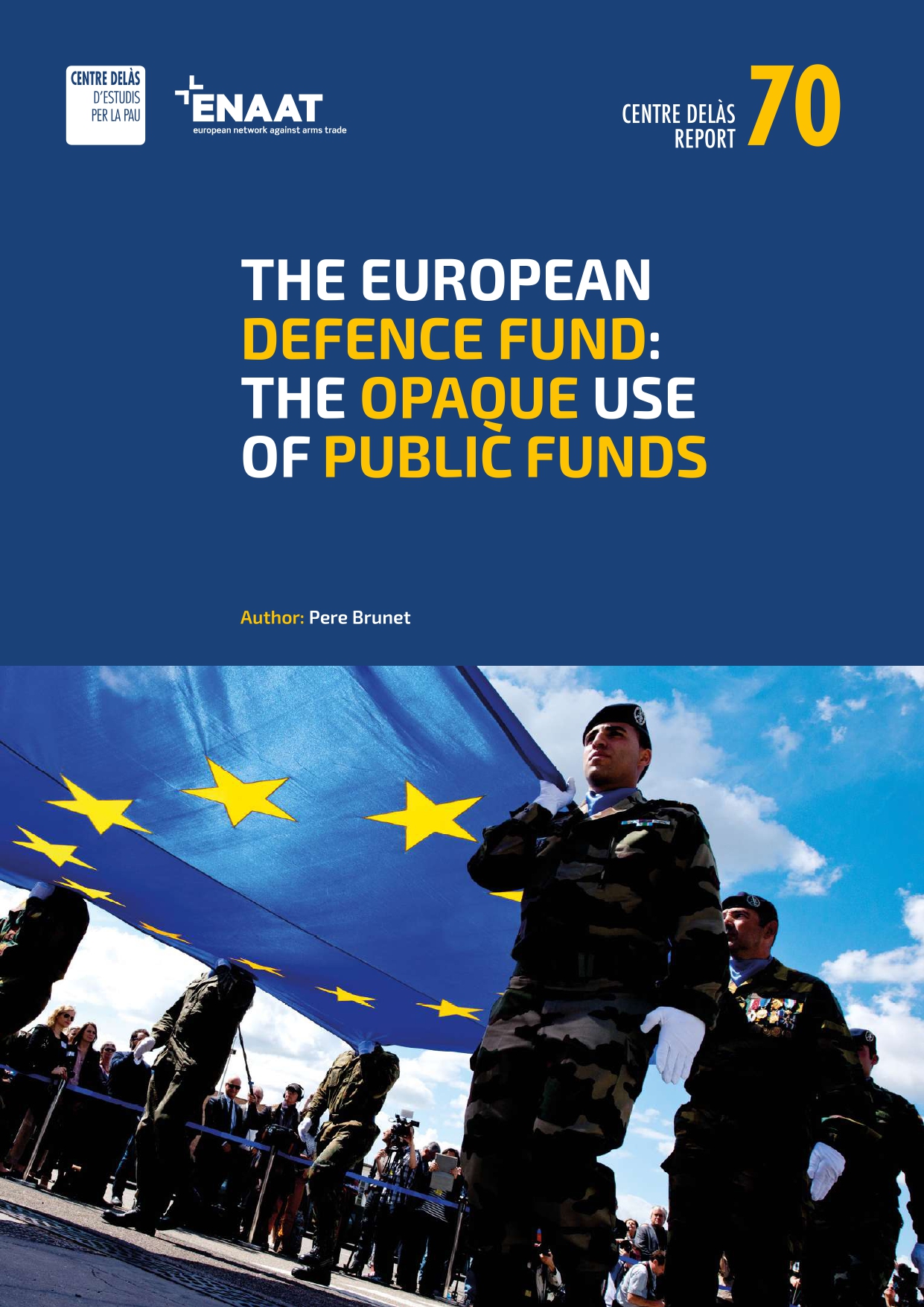EU report: up the export of armaments, but Monti Government plays with the figures
Article from Giorgio Beretta (Rete Italiana per il Disarmo), analyzing 2011 european arms exports and peculiarities of the italian case.
New and fresh business for the European Union military industry: year 2011 saw an increase by 18.3% in orders to EU countries for exports of military systems that have reached 37.5 billion euros. Particularly strong the exports to Middle East and Asia, fall of orders from the United States. The deliveries also increased, but about them the EU Report does not present the data because some countries (including Germany and the UK) did not report them. To adapt to the German standard, the Italian Government has confused the numbers: while the National Report stated more than 2.6 billion euros of deliveries, the Monti government has told the EU just 1 billion: a clever play with figures (Giorgio Beretta for Unimondo)
New and fresh business for the European Union military industry
even in the crisis year: after a decline in 2010, the orders EU
countries for exports of military systems increased by 18.3% orders so
that in 2011 (latest available data) exceeded the 37.5 billion euros.
Growth is especially strong export regarding licences of exports to the
areas of greatest tension in the world (Middle East and Asia), while
declined for the United States. The deliveries (exports) of military
equipment also increased, but about them the EU Report does not present
the data because some countries (including Germany and the UK) did not
report them. Perhaps in order to adapt to the German standard, the
Italian government has decided to plays with the figures: while the
National Report stated more than 2.6 billion euros of deliveries,
government officials have reported to the EU just slightly over 1
billion: a “mistake” that raises some questions on the transparency of
the Government Monti in military matters. But first things first.
No communication and various omissions
As the
last year, this “Fourteenth Annual Report on exports of military
technology and equipment” (here in.pdf) was published at year-end
(December 14th) in astonishing silence: not a press release from the EU
Council, not announcement on the European Parliament website, not press
conference (and of course no newspaper article). In short, a
bureaucratic act to comply, but which governments prefer not to draw too
much attention perhaps to avoid having to comment out several anomalies
and respond to the various questions that military exports rise. The
data are in somewhat already obsolete: the EU Report shows in fact the
licenses and deliveries (exports) of arms of the member countries for
the previous year, i.e. year 2011. It seems it takes a whole year to EU
officials to receive and assemble the data of the national reports:
those on the export of turnips and potatoes come usually faster.
Despite the long period of time for preparation, the information of the report is incomplete and largely lacking. Also this year, in fact, a tiny footnote (p. 8) warns that about the deliveries (exports) “several member states were unable to provide data”. Among them there are some which are not minor countries in the production of weapons: as well as Belgium, Denmark, Poland, Greece and Ireland, have not provided the EU with the figures on actual deliveries Germany and the United Kingdom that are two of the largest global exporters of armaments. Fourteen years after the entry into force of EU Common Position (previously Code of Conduct), it is hard to believe that these countries are still trying to solve some “technical problems”: after all, much of this information is available in the national reports that governments handed over to their respective Parliaments. But bring the data correctly (by category and recipient countries) in the EU Report means – and this is the central question which obviously some countries prefers to avoid – exposing to comparison with other member states, and especially, in the case of actual deliveries of military equipment, to have to account for the many questions that such exports would rise. Let’s see some.
More weapons to the Middle East and Africa, not the U.S.
The
European report shows the official data of exports of military systems
of each EU country individually to every other state and then is
aggregated geo-political zones and totals (Worldwide). The Report,
however, in addition to lack of aggregate data on actual deliveries of
military systems (exports), it does not offers a comparison table with
the data of export of previous years. To value, then, the annual
variations and trends one should consult previous reports (for an
examination of the last two published reports see these two of my
articles: year 2011 and year 2010). The remarks that follow are the
result of my processing the figures provided by the latest European
Reports.
First, as already mentioned, in 2011 the licences of exports of weapons as a whole grew by 18.3% to the total amount of more than 37.5 billion euros. In addition to arms transfers between EU countries which also include intergovernmental co-productions (€14.5 billion), show a strong recovery in exports to Asian countries (from €4.7 billion in 2010 to over €5.5 billion in 2011) and, especially to the Middle East (from €6.6 billion to almost € 8 billion). Also increased licences to sub-Saharan Africa which reached €493 million euro. Down are mainly the licences to North America (€4.6 billion in 2009, € 3.6 billion in 2011), Central and South America, as well as to the countries of North Africa to which, however, despite the 2011 was the year of the popular uprising of the “Arab Spring”, the European countries have authorized arms exports to more than 1.2 billion euros.
In 2011, the largest customer of the European defence industries are not the U.S. (€ 3.2 billion down from the € 3.5 billion in 2010), but Saudi Arabia: to the Saudi monarchy European countries have approved exports of military systems for more than €4.2 billion, the bigger part of which from the United Kingdom (over €2 billion) for the Eurofighter Typhoon, a contract with somewhat turbid contours, in which participate also Italian companies. Another big client are the United Arab Emirates (€1.9 billion): in a word, the monarchies of Middle East are the main customers of the European military industry and weapons continue to be the goods for exchange of European countries to pay their energy bills.
It is no coincidence, then, that despite the popular uprisings of 2011, it has been authorized arms exports even to countries with large energy reserves and mineral resources such as Algeria (815 million euro, of which more than half of Italy) and Morocco (€ 335 million, mainly from France). But – and this is very awkward thinking of the violence and repression in year 2011 in these countries – the licences of arms exports from EU whre uissued also to Egypt (€ 303 million), Tunisia (€16.5 million) and even Libya (€34 million) 17 million euro of which for “missiles, rockets and bombs” from France.
Weapons continue to be exported from EU countries in other areas of tension such as India (1.5 billion euro) and Pakistan (410 million euro) and even Afghanistan – a country still under partial arms embargo – which in 2011 saw a record of military imports from EU countries: more than €465 million, of which €346 million from Estonia for some strange “energetic materials”.
Italy: the technicians of the government, incompetent or smart?
And now we come to Italy. The export licenses are obviously identical (including co-productions) to those reported in the last report of the President of the Council. But, as the Berlusconi’s government, also Monti’s government has chosen to report to the EU only the total of the deliveries (exports) of military equipment omitting to specify the types (category): a ploy to not expose themselves to possible criticism on the weapon exported to various countries at risk and that, does not help transparency. But most of all, like last year, also this time the figures of the National Report to the Italian Parliament and that of the EU Report do not match. In fact, while the Official Report of the President of the Council on arms exports reports as “export operations carried out” (i.e., deliveries) over €2,664 million (see p. 32 and Table 9 of the report. pdf), the Italian Government has reported EU deliveries (exports) for only € 1,022 million (see p. 386 of the EU Report: Italy, row C), that is less than half. Earlier – that is, until two years ago – the figures of the two Reports matched exactly, also because they regard materials already delivered and registered by the Customs. A mystery? Not really.
The figure reported by Italy to the EU are not casual. In fact, it matches almost perfectly to the export of “arms and ammunition” (but mainly for civil and sports and non-military) that can be found in the National Statistic (ISTAT) database on foreign trade: in the category SH 93, in fact, ISTAT reported for 2011 global arms exports from Italy of € 1,026,518,518, and the EU Report reports a (military) export of € 1,022,662,340.
In any case, the last two Italian governments (Berlusconi and Monti) appear very similar regarding the reporting on export of weapons: in the EU Report both of them do specify the types (categories) of weapons delivered and, in so doing, they have maintained a prudent and comfortable position of restraint; moreover, communicating only the total figures – that look like the ISTAT data (also accessible from the UN Comtrade database) – offered to the public a plausible (some would say “misleading”) information that may have some ground. In doing so, however, both have avoided exposure to embarrassing questions: if, in fact, they had communicated the actual € 2.664 billion euro in deliveries of military equipment and their typology, Italy would have jumped to the eye to be (as in fact) the second European country for exports of weapons, after France (€ 3,647 million), but ahead of Spain (€2,431 million) and especially of Germany (according to the Report of the Bundesministerium für Wirtschaft und Technologies the German arms exports in 2011 where around € 1,285 billion). As mentioned, there are also no data from the United Kingdom, but the governments of Downing Street at least do not wave the flag of Europeanism at every occasion.
Meanwhile, Monti government has resigned: it is, however, still in office for current affairs. We wish therefore that government officials will not miss to opportunity to give us some explanation on the anomalies of the Italian figures in the official report of the European Union on the export of military material. Also this is a matter of credibility for a “government of technicians”.






